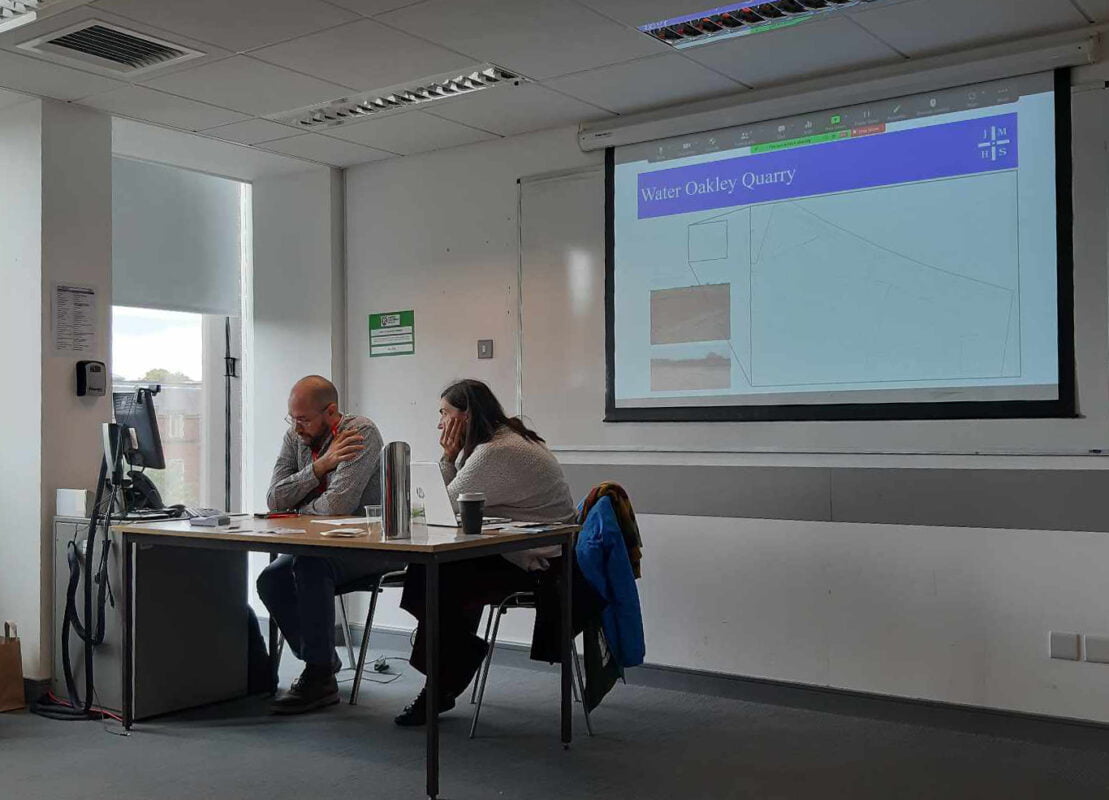
Historic Environment Consultant Brandon Braun recently represented TEP at the 29th Annual Meeting of the European Association of Archaeologists, held in Belfast, NI.
Alongside international researchers from England, Northern Ireland, Egypt, Italy and Czech Republic, Brandon delivered a research paper entitled ‘Archaeology in Modern Quarries of the UK (England): National Planning Policy, Methodologies and Impacts from the Perspective of a Small-to-Medium Sized Archaeological Unit’, which he co-authored with a former colleague.
The paper began with a brief introduction to the planning process in regard to cultural heritage within the UK, with an emphasis on planning policy in England and in relation to quarrying and mineral extraction. Following a short history and motivation of planning policy throughout the UK, the paper focussed on relevant policies and stakeholders before introducing specific chapters of the National Planning Policy Framework, as well as the various guidance and advisory notes available from Historic England.
In particular, Brandon highlighted Historic England Advisory Note 13 (HEAN 13), which covers mineral extraction and archaeology and details the five following underlying principles:
Following the introduction on the planning process, the paper’s primary focus was the challenges and opportunities that quarrying and mineral extraction projects present for small-to-medium sized archaeological units. This was discussed through case studies of quarries within the Thames River Valley, and largely based on Brandon’s experience in developer-funded archaeology with John More Heritage Services (JMHS), where he was a Project Officer in charge of a phase of excavation at Water Oakley Quarry in Berkshire.

For the Water Oakley case study, Brandon described the staged investigation of the site, from pre-planning desk-based assessment to archaeological evaluation through trial trenching and strip-map-record excavation. Grey literature reports were produced for each stage of work, including a report for part of the excavations which Brandon had authored in 2022. Brandon then reflected on the challenges that the heritage work at the quarry presented to JMHS, as well as the opportunities that the work afforded the small-to-medium sized unit.
The paper concluded with the observations that:
1. Research in quarries is a valuable source of information on the historic environment due to the landscape-scale nature of the projects and the staged-work approach;
2. Due to the fact that heritage assets and mineral deposits are scarce resources that are only accessible where they occur, it is vital that planning policy and guidance balances the pressures of sustainable development and impacts on the historic environment.
There are currently plans to publish the proceedings of the session, including Brandon’s paper, in the near future. If you like more information about nay of the above, please contact Brandon at BrandonBraun@tep.uk.com.








